Source: My UM
One of the greatest differences between a high school student and a university student is that the latter must use more initiative in order to get the most out of the college years. UM has done a lot of work in helping freshmen adapt to campus life, including familiarising students with the ‘4-in-1’ model of education and providing guidance on career planning. In this issue of My UM, we ask several students, faculty members, and experts about the best way to spend the four years, and we hope their advice will inspire you to start planning for your future.
Students’ Advice: Plan Early, Dare to Try
Queenie, one of the first graduates of the Biomedical Sciences programme, will go on to pursue a master’s degree in neurosciences at the University of Hong Kong. She advises students to start planning in the first year. ‘Try to expose yourself to different things, even something that doesn’t particularly interest you initially. If you always give up at the first whiff of boredom, you are unnecessarily narrowing your choices,’ she said. She feels very lucky to have met many great teachers at UM. ‘In the second semester of my sophomore year, I started participating in a research project through a research internship programme of the Honours College. In my fourth year, I did my final project on dementia under the guidance of a professor from our faculty. These research experiences are really helpful,’ she said. Queenie doesn’t just excel academically, she is also an active participant in the university’s basketball team and the Students’ Union. She believes that university years are a time for self-discovery, and encourages students to dare to try and explore different possibilities. ‘Even failure offers a chance to learn something,’ she said.
Ashley is a third-year student of maths education. Even as a freshman, Ashley already knew the importance of time management. ‘Study is imperative, but you don’t necessarily have to bury yourself in study. You just have to strike a balance between study and extracurricular activities,’ said Ashley. ‘For example, you could join some student or ganisations, because through these activities you can learn what you can’t learn from books, such as interpersonal skills and communication skills, and these are all important soft skills.’ Ashley advises against spending too much time on part-time jobs, especially those that have little relevance to the student’s major. ‘Don’t be distracted by the short-term gain from part-time jobs, you will be better served in the long run if you invest more time on activities that can actually help you grow ,’ she said.
Michael, a third-year student of biomedical sciences, was introduced to the idea of career planning in one of the general education classes in the first year when the instructor told the students, ‘Now you are university students, the way you used to study in high school will no longer work. You need to think more and expand your knowledge.’ The truth of this advice didn’t really sink in until later when Michael discovered many of his weaknesses while trying to implement his career plan. ‘Self-discovery is the first step. Once I knew my weaknesses, I tried to overcome them through participating in various activities,’ Michael said. ‘For example, I participated in a leadership programme, which not only helped improve my communication skills, project planning skills, and service skills, but also helped me overcome my shyness.’
Weicky, a fourth-year student of the Department of Chinese Language and Literature, is the head of the communications team of the Henry Fok Pearl Jubilee College’s House Association. Talkative and eloquent, Weicky has organized many activities in his college. He also has a great sense of humour and has never failed to elicit a big round of applause when teaching mainland students to speak Cantonese in the college. ‘As long as there is a chance to win a prize with creativity, I’m in,’ he said. ‘As for how to best spend the four years, I think you have to have a clear idea about what you want to do in the future, and then you should break a big goal into small bite-sized sub-goals and set about achieving those sub-goals one step at a time.’ He advises students who live in the residential colleges to take advantage of the opportunity to make some like-minded friends. Asked how to make that happen, he said: ‘Just seize every opportunity to talk to people. Don’t be shy, and don’t play cool.’
Professors’ Advice: Discover Your Interest and Don’t Follow the Crowd
Dr Wang Chunming is an assistant professor from the Institute of Chinese Medical Sciences. He also works as a fellow in the Henry Fok Pearl Jubilee College. He has given students a lot of advice on career planning, but the one piece of advice that he keeps repeating is ‘Discover your interest and don’t follow the crowd.’ ‘Many students just do what everyone else is doing without taking some time to figure out what they really like, but you can’ t stick to something unless you are truly passionate about it,’ he said.
From college years to postdoctoral studies, Dr Wang himself has tried different research areas from biochemical sciences to stem cells to biological materials and pharmaceutical research. Only after working in four different organisations with colleagues from more than 20 different countries did he finally have a clear idea about which career path he wanted to pursue. So he hopes to use his firsthand experience to help students with their career planning. ‘First, you have to identify your interest; second, understand that in the process you are likely to become interested in many new things, but you have to decide which one suits you the best,’ he said.
Experts’ Advice: Career Planning Provides a Compass
The Student Affairs Office has a DREAM Pathway guide that helps students with career planning in five steps. ‘D is for discover. You need to discover your potential,’ explained Francesca Tam, functional head of the Future Studies and Placement Centre. ‘R is for research. You need to research career options or graduate study interest. E is for experience. You need to experience the real world of work. A is for Act. You need to take action to implement your plan. And M is for manage. You should form a lifelong learning habit to keep managing your career. ’
Elvo Sou, head of the Student Counselling and Development Section, has rich experience in student counselling. He said,‘From the first year, students should start planning how they are going to spend the four years in college, and then they should invest time to improve themselves. Career planning provides a compass which will guide your way and help you figure out where you want to go and what you want to do with your life.’ He goes one step further by suggesting that if one wants to stay competitive in today’s world, then career planning should not be limited to college years but should instead become a lifelong habit.
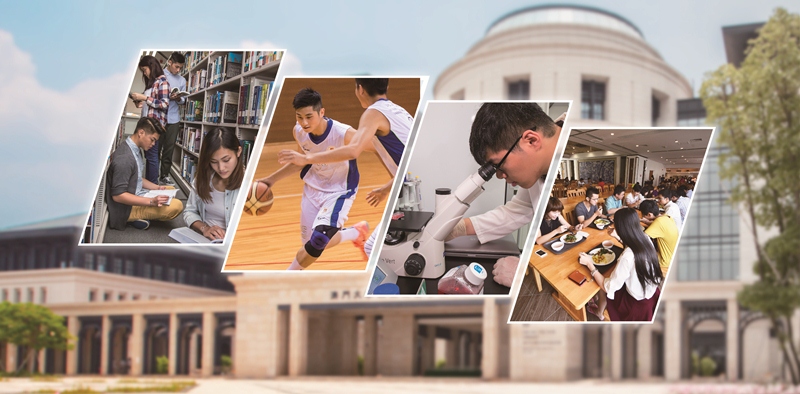
cover_2

Queenie Lee
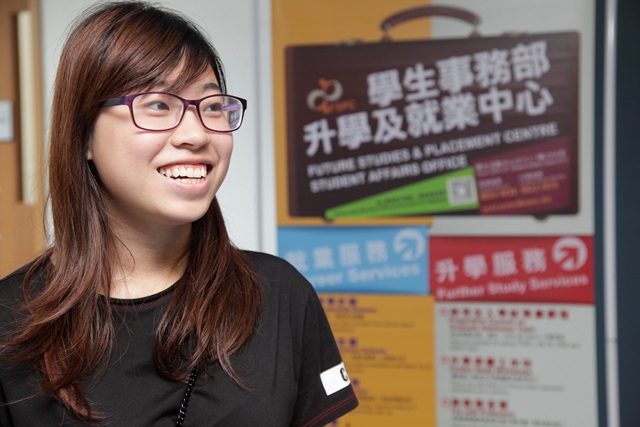
Ashley Ng
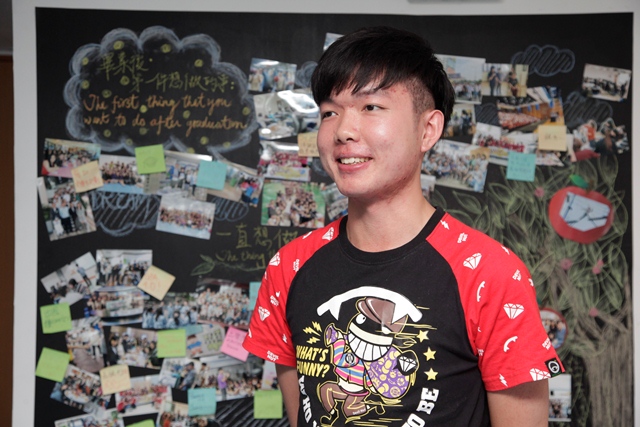
Michael Ieong

Weicky Ieong
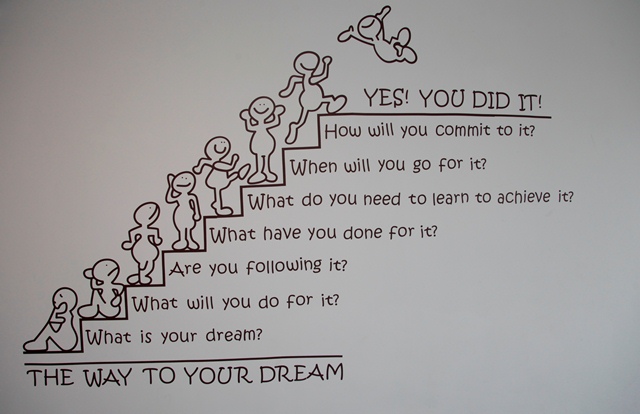
Early career planning helps identify where you want to go in life

Dr Wang Chunming

Good planning and time management helps you achieve more with less
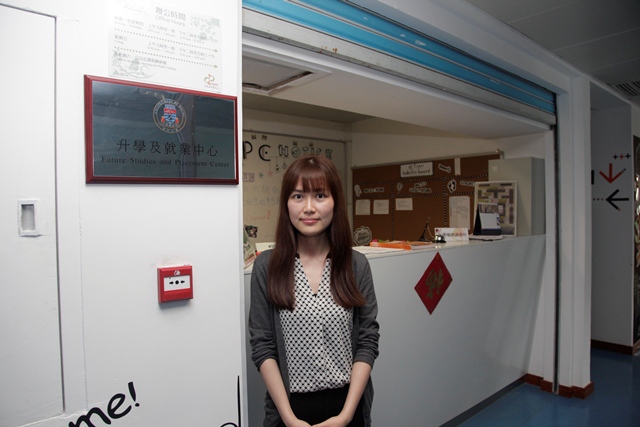
Francesca Tam
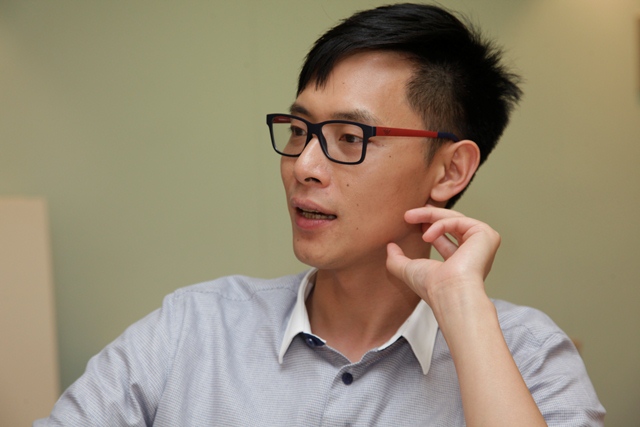
Elvo Sou

Joining student organisations allows one to make friends and develop organisational skills
